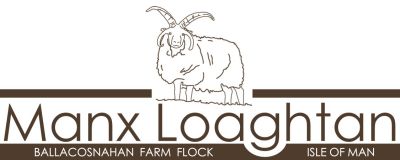Ballacosnahan Farm, in Patrick, Isle of Man, farmed by Jenny Shepherd and her partner Rawdon Hayne, farms Manx Loaghtan sheep in a sustainable way that supports nature.
The farm sells Manx Loaghtan wool and meat and is the world's largest producer of Loaghtan wool, at least three quarters of which is exported to the USA.
The farm has 750-800 Manx Loaghtans, a breed ideal for conservation grazing and habitat management.
It does not use fertilisers, pesticides or chemicals, so water courses it drains to are protected and its hay meadows are rich in flowers and insects. It does not cut for hay until August to allow mammals and birds to complete their reproduction and for flowers/grasses to seed.
The farm works closely with the Manx Wildlife Trust - which is delivering the Agri-Environment Scheme for the Isle of Man Government - to increase habitats for nature.
It is already seeing results. It has one of the largest Isle of Man populations of red-listed Meadow Pipets and at least 10 other red or amber-listed birds, including a Curlew that sometimes nests on the farm. It has a colony of Pipistrelle bats and is trying to attract owls. It is adding ponds to create new habitats.
The farm is reducing its ‘tractor hours’ to reduce fuel consumption, avoids plastic where it can and recycles all it can.
The farm has long been part of the Manx Loughtan story as, between 1904 and 1930, it was home to one of the Island’s largest flocks under T. J. Quirk. His granddaughter has bequeathed photos of the time that are proudly exhibited in the farm shop.
Jenny lectures both on Island and internationally on Manx Loaghtans and the Isle of Man. She was a speaker at the North Atlantic Short-Tailed Sheep and Wool Conference in Greenland in July 2022.
The farm has some Viking history attached to it and it has attracted Culture Vannin-led groups to visit.
The farm also educates people about Manx Loughtans, farming and nature via its popular Twitter and facebook feeds.
In future it hopes to host public farm walks, enabling people to enjoy the wildlife, and to host school groups, when suitable infrastructure can be provided.



